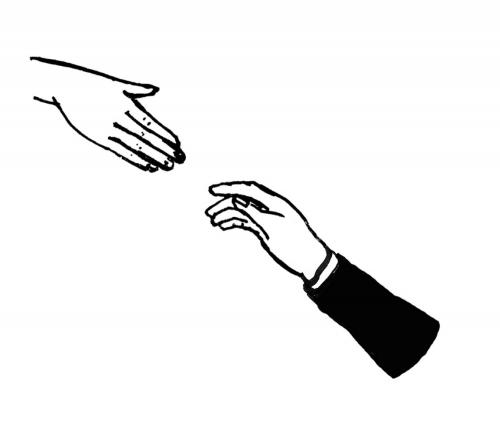 A spokesperson for a divisive president is turned away from a restaurant. That president delights in dog-whistle insults that fall just short of outright ethnic slurs—usually. A white woman calls the police on a black child selling water on a city street on a beastly hot day. A patron who hasn’t been turned away from a restaurant leaves a note for the server, who bears an Arabic name, saying, “We don’t tip terrorist [sic].”
A spokesperson for a divisive president is turned away from a restaurant. That president delights in dog-whistle insults that fall just short of outright ethnic slurs—usually. A white woman calls the police on a black child selling water on a city street on a beastly hot day. A patron who hasn’t been turned away from a restaurant leaves a note for the server, who bears an Arabic name, saying, “We don’t tip terrorist [sic].”
We live in bitter, angry times, with a hall-of-funhouse-mirrors quality to them: Call a racist a racist, and that person will be hurt because you have used an injurious term. Call someone you disagree with a derogatory term, on the other hand, and you might earn a few likes on Facebook. Lose a job here, gain a pardon there: In this swirl of flying invective and free-floating rage, we’re barely talking to one another except to shout.
All this speaks to a crisis of civility, which is to say, a species of etiquette: As a civil person, I may despise the beliefs you hold, but I won’t shout, “You lie!” across a crowded auditorium. I may not like the way you look, but I’ll reserve my comments for interior monologue. Believe what you want to, the thinking goes, but be polite about how you express it in public; advocate separating children from parents at the border or argue for the virtues of the Confederacy with all your might, but mind your manners as you do so and you will have satisfied the all-too-frequently heard plea for civil behavior, no matter how ugly the message.
One can have heart and mind full of venom and still be civil; decency need not enter the picture. Like civility, the latter term speaks to propriety of conduct. Unlike civility, it carries an element of essential soulcraft to it: It goes deeper, into character more than manners. A civil person may be a scoundrel, a decent person never so; a civil person may be a racist, a decent person not; and so forth. Decency gauges the inherent rightness or wrongness of a thought or action, while civility is largely agnostic on such matters. When Joseph Nye Welch beseeched Joseph McCarthy, in a famous moment in American political history, “At long last, have you left no sense of decency?” he was asking the Wisconsin senator for more than showing a little decorum.
Does one precede the other? And which is to be preferred? If you’re looking for no one to be offended, then civility is a desideratum, to be sure. But, observes the philosopher Avishai Margalit, decency is really what we should be after: “A decent society,” he writes, “is one whose institutions do not humiliate people.” A decent society is fair and constructive, a civil one merely polite. Given the war on the social contract and the supremacy of the zero-sum game, of course, we should be grateful to take what we can get, but there’s a world to win—with the utmost courtesy, of course.






